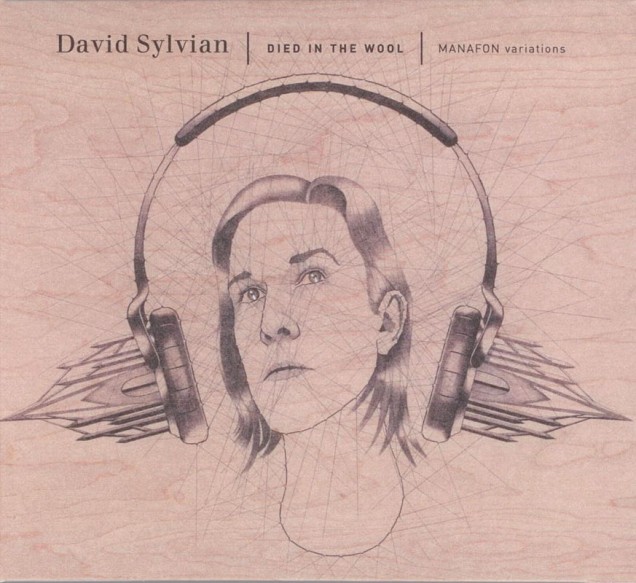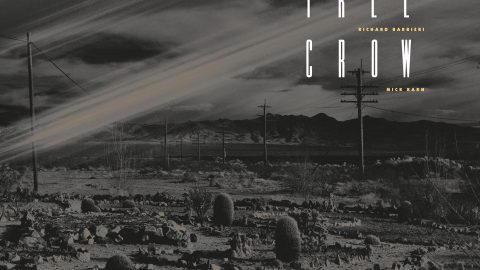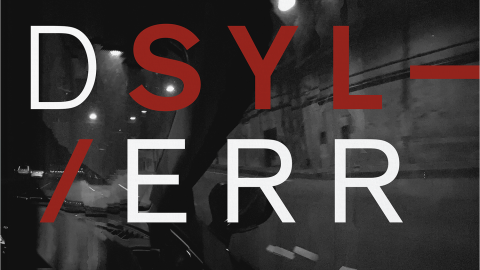
This page contains a compilation of reviews as found online, in papers and magazines about David Sylvian album Died In The Wool.
Latest:
– YES! weekly (Januari 2012)
– All About Jazz (October 2011)
– Dusted Reviews (July 2011)
– OndaRock (Italian, june 2011)
– Twente uit de kunst (dutch, june 2011)
– The Wire (june 2011)
If you have/found a review which is not listed here or a review by yourself? Please contact me to give it a home on this page.
YES! weekly (Januari 4th, 2012)
Not so fast: Overlooked albums of 2011: Died in the Wool
by Ryan Snyder
Former Japan frontman David Sylvian’s solo career has been a series of increasingly bold choices since the synth-pop band formally disbanded in 1982. Using his 2009 release Manafon as the mash for an expanded, two-disc set Died in the Wool, he crafts an expansive set that’s as stark as it is sublime. It can be looked upon as free jazz with a melodic structure that speaks to his pop roots as easily as it could be seen as a folk-pop work with a free jazz foundation. Either way, it challenges the novice’s preconceptions of what a song can be and is destined to be loved by open-minded jazz fans for a long time to come.
All About Jazz (October 16 2011)
David Sylvian: Died in the Wool: Manafon Variations
by Nenad Georgievski
Inventive and beautifully direct, Died In The Wool is another masterpiece in a long string of albums that singer and composer David Sylvian has recorded. His varied career portrays a restless creative spirit who makes engaging work, and Died In The Wool is another winner. Few artists at this point of their career would accept such challenges or would stray from their identifiable core.
Ever since Blemish (Samadhi Sound, 2003), Sylvian has been commissioning sister records for his “regular” output that consist either of remixes, alternate takes and/or unreleased material which stand on their own as cohesive work. Died In The Wool is the sister album of Manafon (Samadhi Sound, 2009), a simultaneously brilliant and difficult record, where again he eschewed the pop sound he was first associated with.
For the previous two sister records, The Good Son (Samadhi Sound, 2003) and Money For All (Samadhi Sound, 2007), he engaged musicians on the cutting edge of the electronic scene, and employed state of the art studio technology to reshape the material . In the same manner, he here employs the services of Dai Fujikura, a Japanese-born, London-based composer of contemporary classical music, as well as Jan Bang and Erik Honoré, who are two of the most prolific mavericks and soundsmiths of contemporary electronic music, with rich sonic vocabularies.
These artists reroute the music of Manafon through a micro-engineered forcefield awash with crisp and bristling activity and strings washes. Consequently, Died In The Wool is an intriguing, drifting and sometimes accelerating sonic affair. It is intensely moving because of the complexity of emotions it invokes. The contributors provide cinematoscopic features that replace the eeriness of the original material with a distinct feeling of warmth. The sound textures slide in and around each other, and sounds loom and roll ominously past as ghost objects. There is a flurry of activity around Sylvian’s voice,with atonal flourishes and clusters that suggest an inscrutable logic of their own.
Over those thick patches of strings and ambient sounds, Sylvian sings the songs in a way that manages persuasively to convey shades of melancholic and desolate emotions. Bang and Honore contribute remixes to two tracks, “Emily Dickinson” and “Died In The Wool,” and they contribute to two new tracks, “I Should Not Dare” and “A Certain Slant of Light.” These tracks were constructed from live performances and studio experiments.
The second disc comprises a single track titled “When we Return You Won’t Recognize Us,” an audio installation commissioned by Biennial of Canarie 2008-2009. The piece was informed by a maverick production and collective improvisation approach, as heard on Manafon (and the pairing of improvisers such as John Butcher, Arve Henriksen, Günter Müller, Toshimaru Nakamura, and Eddie Prévost with a string sextet directed by Fujikura), which has resulted in a composition deftly carved out of an improvisation that reconciles apparently irreconcilable soundworlds.
The textures and timbres pervading these pieces might belong to the soundworld of electronic music, but beyond that there is a sense of broad sonic inclusiveness. Died In The Wool is a curious album, where every sound and nuance is laden with significance. Despite the number of cooks, the broth is not spoiled by the numbers, but works as a cohesive sound unit with thoroughly enjoyable music.
CD1: Small Metal Gods; Died in the Wool; I Should Not Dare (for N.O.); Random Acts of Senseless Violence; A Certain Slant of Light (for M.K.); Anomaly at Taw Head; Snow White in Appalachia; Emily Dickenson; The Greatest Living Englishman (coda); Anomaly at Taw Head (a haunting); Manafon; The Last Days of December. CD2: When We Return You Won’t Recognise Us.
Dusted Reviews (july 25 2011)
David Sylvian: Died in the Wool: Manafon Variations
by Michael Ardaiolo
Twenty-first century David Sylvian is the negative image of latter day Scott Walker. Both musicians have a disrobin
g voice with a talent for enigmatically lingering lyrics. However, where Walker chooses to envelope his vocals in obsessed disharmonic eruptions, Sylvian opts for the absolute minimum. Sylvian’s last few records feature his melancholy voice on stilts of improvisation. It creates the same dramatic effect as Walker’s distraught experiments but with a more austere tension. You are alone with Sylvian. It’s a face-to-face confrontation.
Manofan (2009) is characteristically stark. There is so much negative space, it weighs down on everything else. The terse contributions of Christian Fennesz, John Tilbury, Evan Parker, Otomo Yoshihide and members of Polwechsel (among others) practically fight the silence to be heard. Sylvian’s subtly melodic and lucid voice becomes the breath of each track. When he goes silent for too long, you gasp for a personal connection. An album of variations is almost counterintuitive: by filling the negative space, the whole affect is lost. Died in the Wool, however, succeeds. By giving some of the original players the opportunity to react to the written material rather than the reverse, an entirely new sound emerges.
Manofan impresses despite a lack of graspable music thanks to Sylvian’s poetic imagery. He is a masterful and patient lyricist. On Died in the Wool, the music has a chance to be empathetic to this imagery. Manofan‘s opener, “Small Metal Gods,” is an exhausted plea for mental independence, underpinned by shallow guitar plucks and midnight ambience. It takes on more exact meaning with the accompaniment of composer Dai Fujikura. Died in the Wool‘s variation begins yearning, if not hopeful, thanks to deftly swooning chamber strings. When Sylvian’s lyrics turn bitter, though (“I’ve placed the gods in a zip-lock bag / I’ve put them in a drawer / They’ve refused my prayers for the umpteenth time / So, I’m evening up the score”), so do the strings. Descending disharmonies give the poem a sourness and disgust that the original version never quite reached.
Fujikura is prevalent throughout the album, and his presence is compelling. The chamber strings return on “The Last Days of December.” They don’t quite circle and echo the lyrical sentiments as they did on “Small Metal Gods,” but instead work as a tension between the melodic vocals and the bleak lyrics. During a rework of “Snow White in Appalacia,” Fujikura composes a skipping, fluttering, harmonically complex backdrop for Sylvian. He also gives “Random Acts of Senseless Violence” the unpredictably dreadful accompaniment it deserves. The potent lyrics (“The targets hit will be nonspecific / We’ll roll the numbers, play with chance / All suitable locations and planned in advance / Someone’s back kitchen / Stacked like a factory with improvised devices”) become all the more unsettling.
Producers Jan Bang and Erik Honoré similarly rework “Emily Dickinson” and “The Greatest Living Englishman” for a more concise and organic listen, scrapping the minimal post-jazz setting of Manofan for 21st century chamber pieces. They also work with Sylvian to put two of Dickinson’s own poems to music. “I Should Not Dare” stands out for its relatively buoyant pace and warm melodies. Christian Fennesz contributes expanding po
OndaRock (june 2011, Italy)
David Sylvian: Died In The Wool
7 out of 10 stars
by Gianfranco Marmoro
Cosa puoi associare alla morte per renderla meno dolorosa? Forse un caldo abbraccio, come quello di una coperta di lana. Così “Died In The Wool” avvolge le trame di “Manafon” riscaldando le emozioni che erano rimaste celate dietro arrangiamenti essenziali e innovativi, che solo il tempo potrà rendere familiari. Non l’ennesimo remix e neppure un pamphlet speculativo assemblato nel tentativo di spiegare l’incommensurabile, David Sylvian è uomo alla costante ricerca di stimoli sonori e l’incontro con Dai Fujikura è il seme di questo progetto. Un album che si perfeziona pian piano, sulle trame di una breve collaborazione che diventa un insieme più complesso, drone sinfonici che addolciscono le spigolose architetture dei brani originali, sentimenti che distillano pulsioni cerebrali raccordando un senso di bellezza più classica e svincolata dal germe dell’improvvisazione.
Dodici brani di cui solo cinque gia apparsi in ”Manafon”, il resto nasce sulle ceneri di brani eliminati dal progetto e su idee originali di Dai Fujikura. “Random Acts of Senseless Violence” è il primo frutto della collaborazione, che appare nella versione giapponese e nella versione in vinile di “Manafon”; le orchestrazioni curano ogni dettaglio, piccole sfumature che celebrano tecnica e ispirazione, mentre la voce diventa puro strumento. La centralità emotiva della voce, sottolineata dal lavoro di Dai Fujikura, è il vero punto di forza di “Died In The Wool”. L’album scorre con toni sinfonici-avantgarde, tra campionamenti di Arve Henriksen, che immergono “A Certain Slant of Light” in un mare di lirismo perfetto, e poemi di Emily Dickinson che sfiorano l’apoteosi emotiva in “I Should Not Care”, con preziose gocce sonore orchestrate da Christian Fennesz e Jan Bang.
Quello che lascia leggermente perplessi è la consapevolezza che le cose migliori di “Died In The Wool” non sono le riletture dei brani già editi, ma le nuove composizioni, ovvero il frutto di questa interessante collaborazione col musicista giapponese e di altri progetti minimi, che scortano la impetuosa verve artistica di David Sylvian. La dissonanza vocale che caratterizzava “Manafon” è in parte scomparsa, le visioni alla “Blemish” hanno riacceso l’emotività che si celava dietro le ultime monumentali costruzioni sonore e il tutto sembra riconciliare l’artista con il suo lato più romantico e suadente, come dimostra la conclusiva “The Last Days Of December”.
In definitiva, “Died In The Wool” supera l’ostacolo di ogni raccolta di inediti e variazioni; le cinque tracce di “Manafon” (“Small Metal Gods”, “Random Acts Of Senseless Violence”, “Snow White In Appalachia”, “Emily Dickinson” e “The Greatest Living Englishman”), l’outtake (“Anomaly At Taw Head (A Haunting)”, i due poemi di Emily Dickinson (“I Should Not Dare”, “A Certain Slant Of Light”) e le nuove composizioni con Dai Fujikura (“The Last Days Of December”, “Died In The Wool”) formano un corpo unico, che accoglie con benevolenza la traccia unica del secondo cd, “When We Return You Won’t Recognize Us”, una installazione audio proposta nel 2009 per la biennale delle Canarie. David Sylvian continua a seminare germi sonori i cui frutti saranno raccolti nel tempo e che sono sempre più difficili da ignorare.
Twente Uit de kunst (add. TC Tubantia) (june 2011)
David Sylvian varieert op Manafon
by Theo Hakkert
Modern klassiek van voormalig Japan-zanger is adembenemend fraai.
David Sylvian heeft altijd een hang naar het Verre Oosten gehad. Leek de naam van zijn band Japan eerst nog een aardig toeval, uit het vervolg van zijn muzikale leven bleek die naam eerder een poëtica.
Gaandeweg verdween de westerse kant van zijn muziek en zo hielden hij en wij alleen de oosterse sfeer en klanktapijten over. Wel met zijn prachtige stem, die zo warm en kenmerkend is. Twee jaar geleden maakte hij de cd Manafon, niets minder dan een vergeten meesterwerk. Op zich niet zo gek, want met popmuziek heeft het niets meer te maken. Het is vocaal modern klassiek. Laat overigens onverlet dat de cd wel degelijk de Album Top 100 haalde. Er is hoop.
In 2010 maakte Sylvian Sleepwalkers, maar voor zijn nieuwe cd, Died In The Wool, grijpt hij terug op Manafon. In het schitterende boxje zitten twee cd’s. De eerste met Manafon Variations, maar ook nieuw werk in dezelfde sfeer. Dat alles bijeengehouden door zijn stem, hoe fraai, hoe adembenemend fraai. En spannend ook. De nieuwe versie van ‘Manafon’ zou zo op elk moment kunnen stoppen óf exploderen.
Op het tweede schijfje staat één lange soundscape, ruim 18 minuten: ‘When we return you won’t recognize us’. Het is een instrumentaal stuk van Sylvian, samen met zijn nieuwe kompaan, de Japanse componist Dai Fujikura – uit ‘de school’ van Ligeti en Boulez.
Voor weinigen? Voor de happy few? Gewoon luisteren. Met open mind kom je ver.
The Wire (june 2011)
Died In The Wool: Manafon Variations
by Mark Fisher
transcription by Blemished, taken from japansylvian.com
Died In The Wool prompts an unkind thought: the songs on Manafon barely deserved to be released once, never mind twice. But here they are: new versions of most of Manafon’s songs, rerecorded with composer Dai Fujikura and a group of improvisors including John Butcher, Evan Parker and Keith Rowe. Manafon already felt like an unconvincing successor to Blemish, Sylvian’s most accomplished solo record. But, on the first few listens, Died In The Wool had the effect of not only making me withdraw the benefit of the doubt that I’d extended to Manafon, it also threatened to retrospectively undermine Blemish. Was it really as good as it seemed back then? So I go back and listen, and I’m relieved to say that, no: Blemish remains the moment when Sylvian found a post-Japan setting that suited his voice, a voice that has always been about evasion, hesitation and inhibition.
Blemish worked because it played upon this; the songs were about what the voice could not (bring itself) to sing, traumatic wreckage it could only allude to. Manafon sought to be as cryptically suggestive, but, instead, the words too often seemed obfuscatory, and Sylvian’s delivery of them laboured. The voice frequently seemed like an intrusion on Manafon. Still, there was something sombrely seductive about the blend of turntablism, piano and electronics that his collaborators came up with: and, though he didn’t quite rise to the challenge, the very fact that Manafon raised the possibility of reconciling some of the leading edges of 21st century experimentalism with song meant that even its failures intrigued.
Giving new backing tracks to the Manafon songs compounds the problem that dogged the source album: the impression that there was no real connection between Sylvian’s vocal and the music. Here, as on Manafon, “Small Metal Gods” feels like its straining towards a significance it can’t reach (there would have to be a very good reason for using a word as clunkily prosaic as “umpteenth” in a song, and Sylvian doesn’t come up with it). But, if anything, Fujikura’s strings seem even more disconnected from Sylvian’s voice than the original backing was. This goes for most of the alternative variations of the Manafon material.
You’re forced to the conclusion that the problem lies in the songs themselves. To work in so exposed a setting, they needed to have a prose-poem starkness; instead, they seem almost clumsy, certainly unwieldy, unformed: not quite songs at all, and not quite anything else either. There’s so little differentiation between Sylvian’s delivery on each track that you feel you could practically take a line from any song and insert it into any of the others and it would have no effect.
Died In The Wool’s non-Manafon songs work best. “Died In The Wool” itself has an eerie stillness; while “A Certain Slant Of Light” (one of two tracks with words by Emily Dickinson) and “Anomaly At Taw Head” constitute a kind of ruined pastoral. The suspicion with some of Sylvian’s recent work is that it demands more from the listener than it offers in return, but these tracks do repay the effort of repeated listening.
musicOMH (june 2011)
Died In The Wool: Manafon Variations
by Jude Clarke
2009’s Manafon was perhaps David Sylvian’s starkest, bleakest, most emotionally-challenging moment to date, in what had already been a long and distinguished post-Japan career. He told us, in a Q&A late last year, that these new interpretations of several pieces from that album – the fruits of a collaboration with composer Dai Fujikura – would both “flesh out the melodic content inherent in the vocal lines” and “make the compositions more accessible” by, in some sense, underpinning and highlighting the melodies that were always there in the original interpretations.
Re-workings of five Manafon tracks (Small Metal Gods, Random Acts of Senseless Violence, Snow White in Appalachia, Emily Dickinson and The Greatest Living Englishman) are included. There is also a version of an outtake from the original Manafon sessions (Anomaly At Taw Head (A Haunting)) and new pieces The Last Days of December, and Died In The Wool – all three of which are Fujikura collaborations. Producers and electronics artists Jan Bang and Erik Honoré are the other significant contributo
rs here, providing the remixes of Manafon and Emily Dickinson as well as two tracks of new material, in which the poet Dickinson’s works are set to music (I Should not Dare, A Certain Slant Of Light).
For anyone familiar with the sparse originals, where the silences seemed heavy with every bit as much significance as the improvised sounds between them, Fujikura’s often quite lush instrumentation will initially come as something of a shock. Small Metal Gods, in its new setting, sounds frequently dramatic, sometimes even playful with the strings full and rich or pizzicato. The line “Where’s my Queen of Hearts” now sounds more conventionally “romantic” and the shock of the suicide reference is somehow lessened. Here also, the Random Acts of Senseless Violence, so persuasively described, are over-emphasised, rather than played down. Placing these tracks (these words and vocal melodies) in such different settings seems to brings a different emphasis to them, forcing a re-evaluation by the listener.
Sylvian’s ever-striking vocal combines beautifully, on occasion, with the arrangements. On I Should Not Dare and A Certain Slant Of Light, in particular, there is depth, humanity and a curiously old-fashioned kind of glamour to the singing, all framed in the warm accompaniment of strummed acoustic guitars, piano and little flecks of brass. Sylvian himself claims of this album: “I don’t think I’ve produced work of a more intensely emotional nature than that of the past eight years or so”, and the emotion indeed can be clearly felt.
A second disk provides the first stereo CD version of Sylvian’s audio installation When We Return You Won’t Recognise Us, produced in 2008 for the Biennial of Canaries. Inspired by the genetics and lineage of the descendents of the original Spanish settlers in the Canary Islands, this improvised work features John Butcher, Arve Henriksen, Günter Müller, Toshimaru Nakamura and Eddie Prévost and a string sextet directed by Fujikura. The resulting 18 minute piece feels very much “of a part” with the preceding album, seemingly created in a similar spirit and resulting in a thoughtful longer but comparably instrumented and atmospheric piece of work.
Critical Mob (june 2011)
Died In The Wool: Manafon Variations
by Jim Allen
Being a David Sylvian admirer can be a maddening proposition. Over the last decade or so, his forward-looking brilliance has gone hand in hand with an inexplicable tendency to revisit, rework, remix, and repackage his material, to the extent that his latter-day catalog is dominated by this seemingly pathological retooling. So it’s only natural to approach Died in the Wool with a wary eye upon learning that it reworks material from Sylvian’s previous album, Manafon. However, it turns out to be more of a “new” album than anything else. Only half the tracks are actually re-jiggered Manafon cuts, and most of those are drastically different, and arguably improved by replacing the original ultra-minimal/barely musical settings with young Japanese modernist composer Dai Fujikura’s arch-but-melodic avant-chamber orchestrations. The new material includes both Manafon outtakes and pieces that build on the ideas explored on the earlier record, sometimes sounding like a more austere cousin of Tim Buckley’s Lorca/Starsailor explorations, or even King Crimson’s Islands-era chamber-rock ballads (Sylvian has, after all, collaborated extensively with KC mainman Robert Fripp). Died in the Wool isn’t for Sylvian beginners, but fans needn’t fear it.
Galileo MC (june 2011)
Died In The Wool: Manafon Variations
(the link on the thumbshot will open the english version of the website)
Died in the Wool präsentiert Variationen über David Sylvians 2009er Album Manafon und zusätzlich sechs neuen Stücken und Kollaborationen des hochgelobten Komponisten Dai Fujikura, den Produzenten Jan Band und Erik Honoré und einer brillanten Liste an zeitgenössischen Musikern und Improvisationskünstlern.
Im Laufe seiner Karriere hat sich David Sylvian von seinen Pop-Ursprüngen in gewagtere musikalische Gefilde begeben. In der Folge seiner musikalischen Abenteuer im Bereich moderner elektronischer und improvisierter Musik auf den Alben Blemish und Manafon veröffentlicht Sylvian mit „Died in the Wool“ ein bemerkenswertes neues Werk mit dem gefeierten zeitgenössischen Komponisten Dai Fujikura, das die Früchte dieser Zusammenarbeit neben Material, das von den Manafon Sessions stammt oder davon inspiriert ist, präsentiert. Alte und neue Freunde, Balladen und Ambient Improvisationen sowie Werke, die sowohl bahnbrechend und extrem sind, kommen in dieser wichtigen neuen Kollektion zusammen.
Die Produzenten und Elektro-Künstler Jan Bang und Erik Honoré sind die anderen gefeaturten Kollaborateure, die Remixe von zwei Tracks aus Manafon beisteuern. „Emily Dickinson“ sowie der Titel-Track. Bang und Honoré haben bereits in der Vergangenheit an Remixen von Sylvians Werken gearbeitet und auf „Died in the Wool“ präsentieren sie ihre Arbeit außerdem noch in den Stücken „I Should Not Dare“ und „A Certain Slant of Light“, die jeweils Vertonung von Gedichten aus der Feder von Emily Dickinson sind. Es handelt sich dabei um David Sylvians erste Vertonung von Gedichten. Die im konventionellen Sinne schönsten Stücke des Albums wurden von einer Verkettung an Quellen produziert. „I Should Not Dare“ ist voll von Störgeräuschen sowie der bearbeiteten Gitarre von Christian Fennesz gemischt mit live Aufnahmen des Keyboarders Ståle Storløkken. Von diesem Material stammt eine der romantischsten Balladen aus Sylvians Katalog.
„Ich glaube nicht, dass ich ein Werk mit einer intensiveren emotionalen Natur in den letzten acht Jahren oder mehr produziert habe,“ sagt Sylvian. „Ich arbeite nie von einem rein intellektuellen Standpunkt aus. Es ist die Intuition und das Emotionale, was mich bei der Arbeit führt.“
Die zweite CD präsentiert Audiomaterial von David Sylvians Klang-Installation „When we return you won´t recognise us“, das von der „Biennial of Canaries 2008-2009“ in Auftrag gegeben wurde.
„Died in the wool“ wird als Doppel-CD Digipak in einem Kartonschuber mit Artwork von George Bolster und Design von Chris Bigg veröffentlicht.
All About Jazz (june 2011)
Died In The Wool: Manafon Variations
by John Kelman
As the world becomes a smaller place, so, paradoxically, do musical communities expand to reach around it. British singer/composer David Sylvian—first of 1980s pop group Japan, but then a solo artist taking increasing chances with each successive album—has been busting down boundaries of geography and genre since 1984, when he released his first solo album, Brilliant Trees (Virgin), bringing together Fourth World progenitor, trumpeter Jon Hassell, expat Canadian, trumpeter Kenny Wheeler, German multi-instrumentalist Holger Czukay and Japanese keyboardist Ryuichi Sakamoto. As the years passed, Sylvian further expanded his community while moving further and further away from the radio-friendly but still experimental Secrets of the Beehive (Virgin, 1987), and his last studio recording for Virgin, 1999’s Dead Bees on a Cake. Moving into the 21st century with his own samadhisound label, Sylvian began embracing even more outré directions, shaping austere songs around the free improvisations of artists like saxophonist Evan Parker, guitarist Keith Rowe and no-input mixer performer Toshimaru Nakamura. 2009’s tremendous Manafon (samadhisound) completely reshaped the concept of songwriting by building songs from the top down, rather than the bottom up.
Died In The Wool twists it even further. While five of the 12 tracks on the first disc of this two-CD set are songs from Manafon, this is not a remix album like The Good Son VS The Only Daughter (samadhisound, 2004), where material from Sylvian’s collaboration with guitarists Christian Fennesz and the late Derek Bailey, Blemish (samadhisound, 2003), was given broader treatment. Instead, Died In The Wool uses Manafon as grist for further compositional growth—Variations, as it says in the album’s subtitle. In particular through the use of a string quartet on much of the album, though this is not a simple “with strings” treatment; it’s a near-complete compositional reinvention, with the help of Dai Fujikura, who collaborates with Sylvian on more than half the album. The rest of the album teams Sylvian with Jan Bang and Erik Honoré, the two co-founders/artistic directors of the Punkt festival that has created no small stir for its innovative live remix concept, and transferability that allows it to move from its home base in Kristiansand, Norway—where Sylvian will be Artist in Residence for the 2011 edition—to other cities like Mannheim, London and, most recently, Tallinn.
The intersection of the Punkt aesthetic and Sylvian’s seems a natural one, given the laboratory-like nature of the festival and Sylvian’s increasingly exploratory approach to songwriting, and there’s been even more intersection, beyond remixing Secrets of the Beehive’s “Mother and Child” on Sylvian’s compilation, Camphor (Virgin, 2002); Sylvian contributed spoken word to trumpeter Arve Henriksen’s groundbreaking Cartography (ECM, 2009), and song titles and a label for Bang’s recent (and remarkable) debut, …and poppies from Kandahar (samadhisound, 2010). Cutting Manafon’s “Emily Dickenson” to nearly half its original length, Bang (alone, this time, with Sylvian) retains its inherent darkness, but rather than the more decidedly electronic landscape of the original—in spite, perhaps, of his working solely with samples that include pianist Christian Wallurød—Bang’s approach leans more towards an organic-sounding, contemporary classical ambiance. Bang and Honoré’s reimagining of Manafon’s yet more oblique title track pushes it into even more foreboding territory, while managing, with the help of Rowe and trumpeter Franz Hautzinger, to retaining its sense of near-stasis and, at the same time, significantly more defined form.
Sylvian enlists usual suspects like Manafon<‘s Parker and Nakaumra for the new material, along with percussionist Eddie Prévost and saxophonist John Butcher, who appeared on Amplified Gesture, the companion film to Manafon, but not the album. He also recruits Henriksen in sampled form, on the “A Certain Slant of Light”—which, along with the simple, four-chord form of “I Should Not Dare,” represents Died In The Wool’s most overtly song-structured piece, and a harkening in spirit, if not letter, to Sylvian’s more conventional writing (but never conventional soundscaping) of Gone to Earth (Virgin, 1986). The trumpeter also appears—in the flesh this time, along with Butcher, Prévost and others—on “When We Return You Won’t Recognise Us,” the 18-minute free improv which occupies the entire second, bonus disc, and is the first release, on CD, of a sound installation commissioned for the Biennial of Canaries 2008-2009, and which will also be featured at Punkt 2011. A hauntingly beautiful piece—combining these masterful sonic explorers with an equally searching string sextet, directed by Fujikura—it explores ambient territory while commanding attention through movement that’s more often than not textural rather than melodic.
If Manafon was a masterpiece that found new ways to shape music, then Died In The Wool is equally important, as it eschews the concept of remix and, in its place, aims for reinvention—re-composition that takes place, in multiple degrees of separation, from the founding material that was the previous album’s inspiration. That Sylvian has evolved from the post-punk art-rock of Japan into an artist pushing, pulling and, in many cases, completely dissolving boundaries—while, at the same time, evolving new compositional methods—is something that simply could not have been predicted more than 30 years ago, when he first emerged. Now at the vanguard of creative songwriting, and part of an ever-expanding experimental musical community that crosses continents and oceans, time and space, the only thing that’s predictable about David Sylvian is his absolute and utter unpredictability.
Cobra.be (june 2011)
Alleen voor meerwaardezoekers
by Dirk Steenhaut
Sinds David Sylvian na ‘Dead Bees on a Cake’ het juk van zijn platenmaatschappij wist af te schudden, valt zijn werk steeds vaker buiten de parameters van de popmuziek. Op ‘Blemish’ uit 2003 sloot hij al een alliantie met avantgardegitarist Derek Bailey en op ‘Manafon’ ging hij in zee met de Oostenrijkse elektronica-artiest Christian Fennesz en de Britse leftfield-saxofonist Evan Parker. Op die platen was nauwelijks meer sprake van conventionele songstructuren: Sylvians zoektocht naar prikkelende klankkleuren en afwijkende compositiemethoden leidde hem naar een plek op het kruispunt van ambient, hedendaags klassi
ek en geïmproviseerde jazz.
Ook zijn nieuwe album, ‘Died in the Wool’, klinkt weer uitermate abstract en sculpturaal. De cd bevat muziek die, ondanks haar hoge emotionaliteitsgehalte, gevangen zit in haar eigen luchtbel. Het heeft er dus alle schijn van dat de oude fans, op enkele fervente meerwaardezoekers na, een na een zullen afhaken.
Het fraai verpakte ‘Died in the Wool’ vormt het tweede deel van een diptiek en is eigenlijk de keerzijde van ‘Manafon’. Enkele composities van dat werkstuk werden immers drastisch herkneed door de Japanse componist Dai Fujikura, die in ‘Small Metal Gods’ en ‘The Greatest Living Englishman’ avontuurlijke strijkkwartetten aandroeg en zo het spanningsveld tussen akoestisch en digitaal extra in de verf zette.
Voorts liet Sylvian zich assisteren door het elektronicaduo Jan Bang & Erik Honoré, dat druk in de weer is met verknipte samples. Twee van de zes nieuwe stukken op de plaat zijn getoonzette gedichten van Emily Dickinson en vooral de ballad ‘I Should Not Dare’ behoort tot het mooiste en toegankelijkste dat de David Sylvian de jongste jaren heeft afgeleverd. Doorgaans overheersen echter etherische, beatloze en atonale soundscapes. Dit is muziek als stilstaand water, met amper herkenbare melodieën, zonder pieken of climaxen.
Geen easy listening, wel een moedig, soms wat hoogdravend werkstuk van een zoekende artiest die alleen nog doet wat zijn intuïtie hem ingeeft. En daar valt natuurlijk ook iets voor te zeggen.
Nu.nl (8 june 2011)
david sylvian – died in the wool (manafon variations)
by Peter Muijsenberg
David Sylvian staat nou niet bepaald bekend om zijn gemakkelijke muziek. Het nieuwe album van de ex-Japan-frontman is dan ook een ingewikkeld stukje kunst. Dertien soundscapes met als enige aanknopingspunt Sylvians stem.
Samen met nieuwe muzikale partner de moderne componist Dai Fujikura herbewerkt Sylvian op Died In The Wool zes muziekstukken, want songs kun je het niet noemen, van zijn vorige album Manafon. Verder bevat het album zes nieuwe stukken waarvan twee Emily Dickinson-gedichten zijn, op muziek gezet door Sylvian en kompanen.
Schijfje twee bevat een geheel instrumentaal muziekstuk van meer dan achttien minuten gecomponeerd en geïmproviseerd door Sylvian en Fujikura voor een audio-kunstinstallatie.
Met popmuziek heeft dit alles weinig te maken, dit is eerder modern klassiek. Sylvian zingt met prachtige warme stem zijn ongestructureerd vrije teksten, terwijl de muzikanten spaarzaam schilderen en improviseren. Ritmisch is het haast nooit en het enige waar je eventueel maatsoorten van af zou kunnen leiden is Sylvians zang.
Topkwaliteit Over de kwaliteiten van de meewerkende muzikanten en componist Fujikura valt niet te twijfelen, zij behoren tot de absolute top in hun respectievelijke genres en leveren prachtwerk af. Ook Sylvians zang en teksten zijn van topkwaliteit; zijn eigen dichtwerk blijft moeiteloos overeind naast dat van de vaak gelauwerde Dickinson.
Ben je bekend met Sylvians recente werk, dan weet je wat te verwachten en kun je dit album blind kopen. Voor de avontuurlijke muziekliefhebber misschien de moeite waard, maar voor iedere andere muziekconsument is dit vooral verwarrend en zelfs vermoeiend. Knap staaltje werk, maar niet voor iedereen. En zo is het vast ook bedoeld.
Tree, Entertainment Blog (28 may 2011)
David Sylvian–When Beloved Acts Go Weird
by Chelsea Mayhem
Users of stimuli will struggle with any number of consequential realities over their lives. Purity, price, the stigma of association; all these will temper an addict’s relationship with their chosen intoxicant, sooner or later. But above all, the nightmare scenario no-one ever warns you about when you get into music, is what happens when beloved acts go weird. You wake up one morning to realize you’re still buying an act, but the buzz has gone.
My monkey, the one I’ve been struggling with for years, is David Sylvian. No matter how much I try to move on, I still find myself surfing past his website, having convinced myself I’m just looking. Then, inevitably–like last Thursday–I spy him dealing new wares, and I’m scraping together cash and sweating the same old go-round. Which brings us to Sylvian’s new work, “Died in the Wool,” his twelfth album of original material since becoming a solo artist, more if you count the myriad collaborative ventures the former man from Japan has engaged in since the mid-1980s.
Having begun to explore new methods of composition and instrumentation with 1985’s limited release “Alchemy: An Index of Possibilities,” at first Sylvian’s outré experiments were, to paraphrase Oscar Wilde, indulged as luxuries not necessities. Yet over time–and accelerated by his break from Virgin Records around the turn of the century– that parallel has since become reversed; with challenging compositions now default.
“Blemish” (2003) and “Manafon” (2009) proved Sylvian’s transcendence to the avant garde complete. Indifferent to public (and free from major label) demands, both collections swerved convention in favor of manipulated amplifier hum and cut-up guitar distortion across the former, with improvisation and jazz angularity the building blocks for the latter. But while his experimentation was to be applauded, the problem with “Blemish” was, over an entire album, its limited palette proved dull. Therapy from Sylvian’s divorce (from Ingrid Chavez) it may have been; one for full, repeat plays it wasn’t.
Perversely, in between those two releases came the sublime, yet shamefully overlooked, Nine Horses group project “Snow Borne Sorrow,” arguably the closest the man has come to sustained pop alignment since Japan. Ditto “Died in the Wool,” which follows “Manafon” as a companion piece; yet, despite featuring material either reworked from or inspired by that album’s improvisational sessions, this new collection is far easier to breach. Which pretty much sustains the leap-frog motion of Sylvian’s contemporary career: left to his own
devices, he will clearly veer his way out; yet buffered by others in what comes next, his compositions shine.
This new album was apparently created via sound files emailed between Sylvian and the polar opposite camps of classical composer Dai Fujikura, and Jan Bang and Erik Honoré, a pair of electronic music producers. With the addition of new instrumentation, sampling and remixing, this binary circle has not only repurposed much of the mother album’s experimental jaggedness that bit closer to conventional forms, but also inspired Sylvian to deliver one of his most beautiful works in years–the quite brilliant “I Should Not Dare.” An emotive track so sublime as to suggest Sylvian is not, nor could he ever be, utterly lost to logic; it manages to both shimmer and clatter at the same time, via a mix that could best be described as sculptural, so clearly does it advertise the songs odd mechanics.
None of which resolves anything for me; beyond “I Should Not Dare,” I still find myself frustrated by much of “Died in the Wool.” Yet returning to that one singe track, I’m repeatedly elevated; an effect which music has less and less on me, these days. Don’t get me wrong, I understand how for composers like Sylvian, who’ve been in the game so long, pop’s limited meter will eventually become a dead language, incapable of communicating further. But his new patois, all angularity and sombre discord, is not of my tongue; I can listen to but rarely hear much in it, bar cleverness. Like, say, “A Love Supreme” by John Coltrane, Sylvian’s music is now more for the head than the heart. And while I admire Coltrane and admit to owning “A Love Supreme,” as to whether it moves me; well, in all honesty, it doesn’t. Which is fine; there was room in my collection for it, and others would service what Coltrane couldn’t. But unfortunately, one of those was David Sylvian.
Lingering on the disconnect between head and heart, I know Sylvian and I must part probably sooner or later. Which is sad and not something I was prepared for when I fell so hard for “Quiet Life.” But, alas, when you get into music it’s a leap of faith. And the last thing on your mind is what might happen when beloved acts go weird.
Zone 5300 Muziekblog (24 mei , 2011)
David Sylvian :: Died In The Wool
by Sandra de Haan
Van new romantic pop heeft David Sylvian al zo’n twee decennia geleden afscheid genomen. Vanaf Blemish in 2003 begon hij electronica te gebruiken in zijn muziek en zocht aansluiting bij modern klassieke componisten en impro-artiesten. Manafon uit 2009 was vrij experimenteel voor zijn doen met nogal abstracte soundscapes. Voor Died In The Wool heeft hij alle tracks van Manafon herbewerkt, met behulp van componist Dai Fujikura en enkele improjazzmusici. Daarnaast staan er nog 6 nieuwe stukken op. Net als op Manafon hebben de tracks nauwelijks kop of staart, werken nergens naar een climax toe en wiegen je daardoor langzaam in slaap. Een aangename slaap, dat wel. De cello’s, violen, galmtapijten, zachtjes rammelend ijzerwerk, een enkele saxofoon of tokkelende gitaar, sfeervol is het zeker. De productie van Jan Bang and Erik Honoré is ronduit perfect. Waar komt dat onbevredigende gevoel dan toch vandaan?
Op muzikaal vlak is hij zijn grenzen blijven verleggen, maar de manier van zingen is daar niet in mee gegaan. Een lang uitgesmeerde vibrato achter elke introspectieve zin en melancholieke mijmering is zijn handelsmerk. De eenvormigheid van deze zangpartijen zorgt ervoor dat de nummers nauwelijks van elkaar te onderscheiden zijn. De aandacht verslapt daarom al snel, ondanks de smaakvolle arrangementen. Daarbij grossiert Sylvian in een melodramatisch soort poëzie vol grote emoties die je ófwel prachtig vindt, óf vreselijk pretentieus. “When it comes, the landscapes listens, shadows hold their breath… There’s a man down in the valley who is moving back in time. He bears a grudge against the English. And the future will contain random acts of senseless violence… Your sanity shattered… The beating of powderblack wings left you blind”.
De literaire ambitie druipt ervan af, maar de teksten vol Weltschmerz zijn helaas niet pakkend. I Should Not Dare is één van de weinige ‘echte’ liedjes. De bonus-cd in de oogstrelende luxe box met tekeningen van George Bolster op de hoes bevat één stuk: audio from the installation When We Return You Won’t Recognise Us. Geen nummer of track, maar een installatie. Sylvian is geen gewone muzikant, maar een sound artist. Laat dat duidelijk zijn. Op de speciale website over Died In The Wool licht hij een en ander nog uitgebreid toe, zoals het een ware kunstenaar betaamt.













